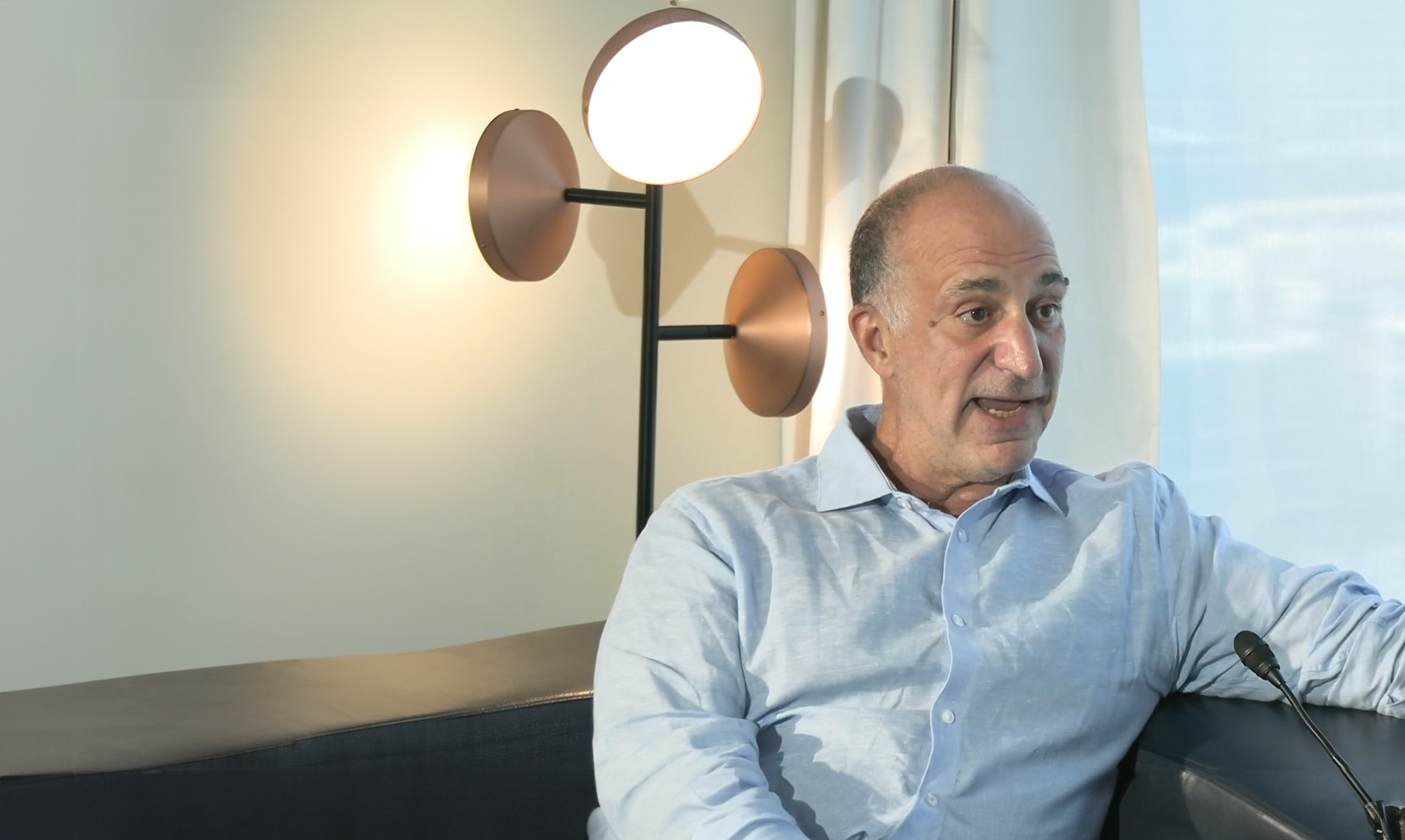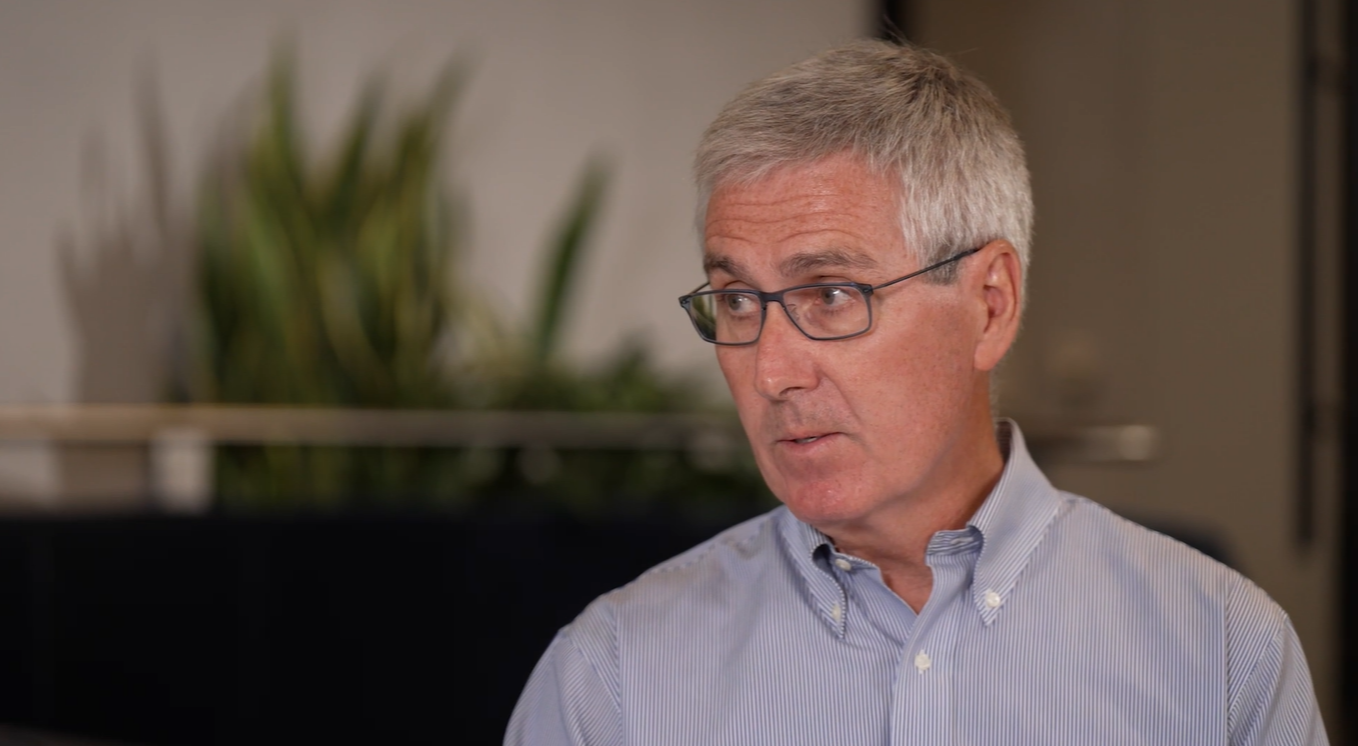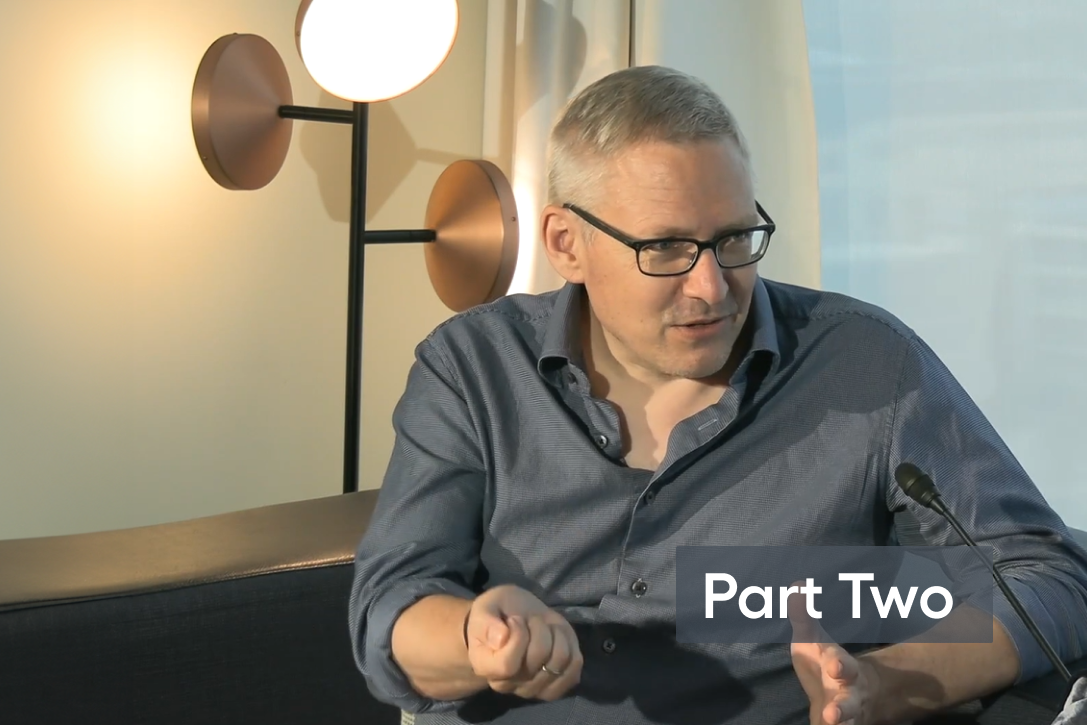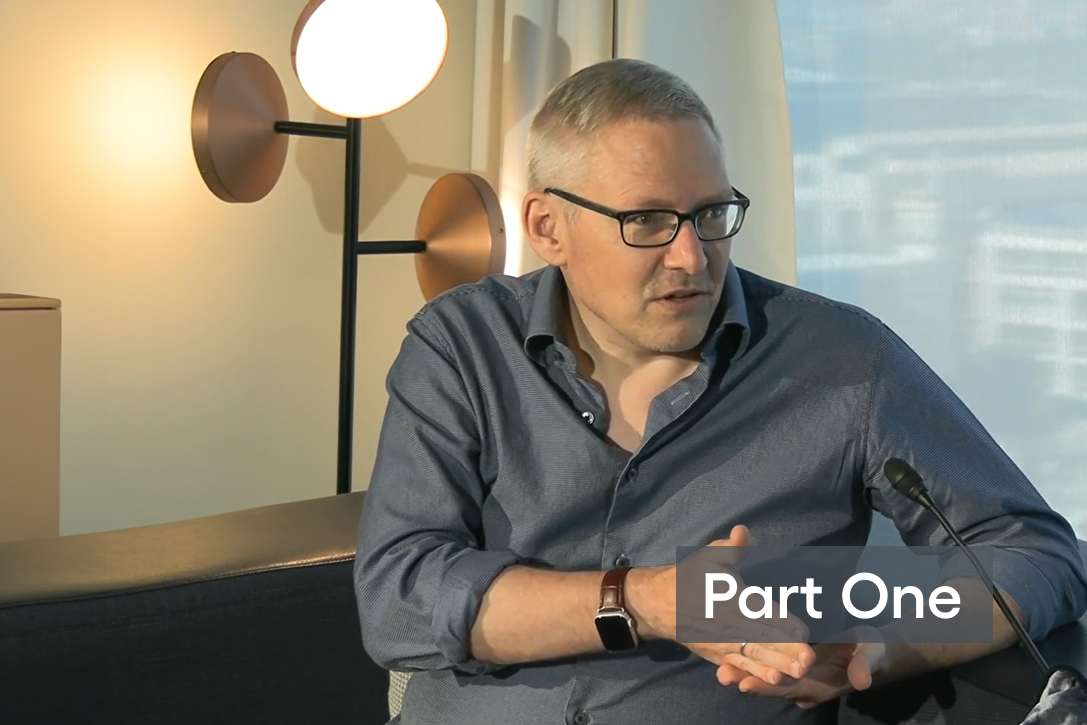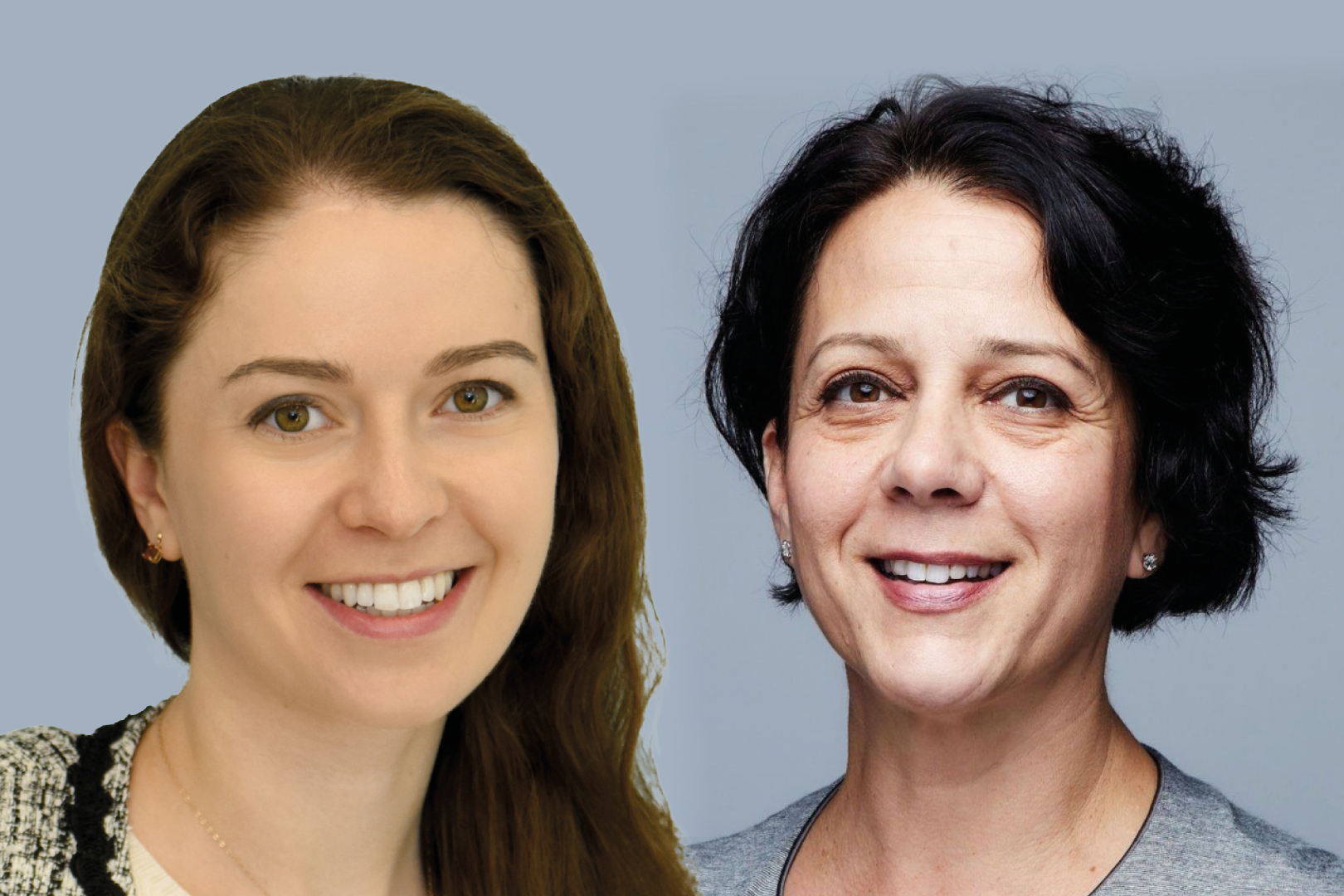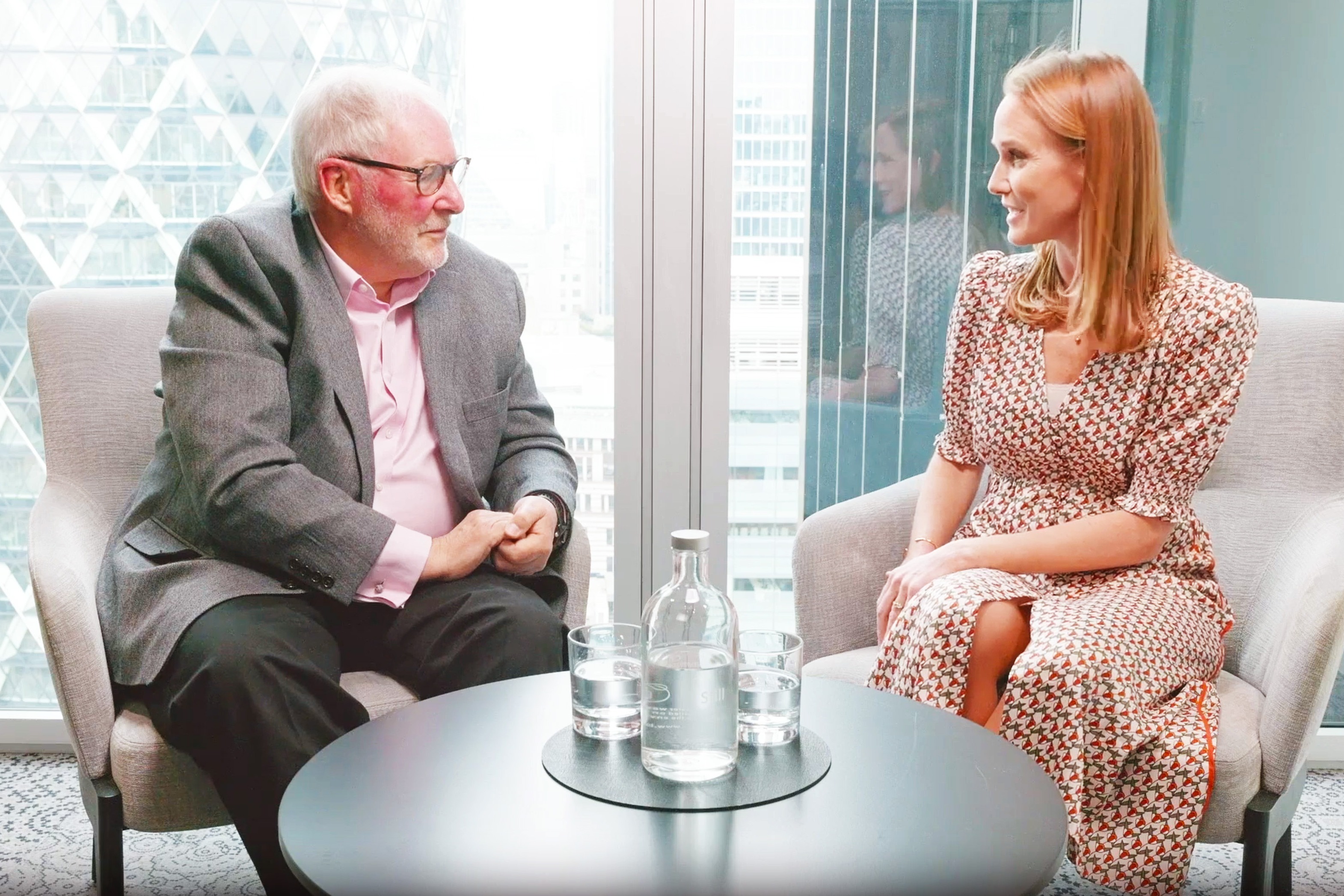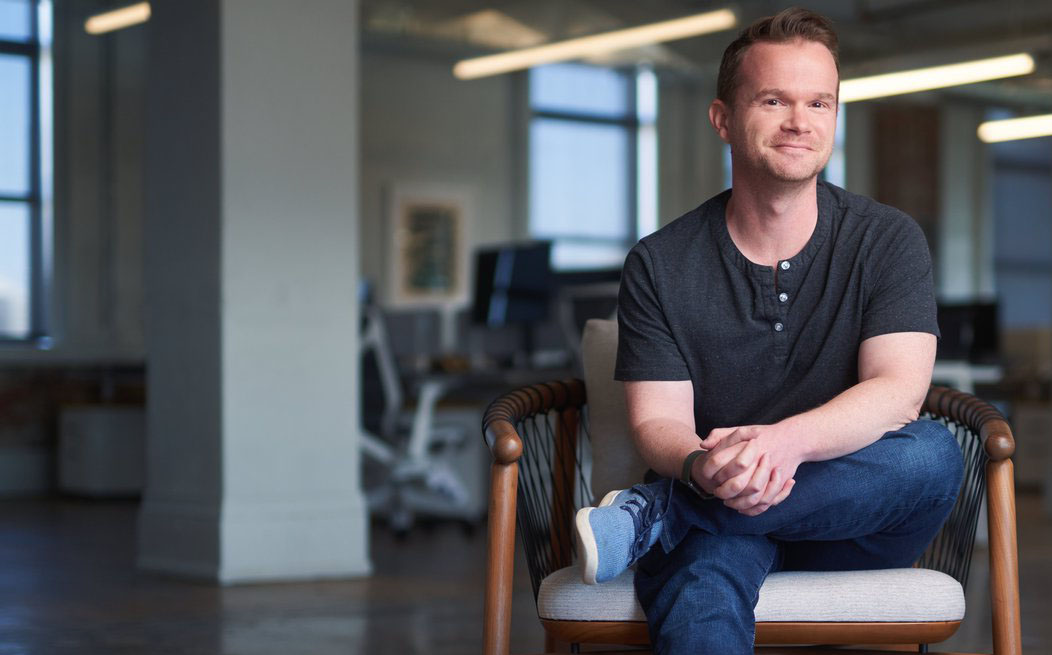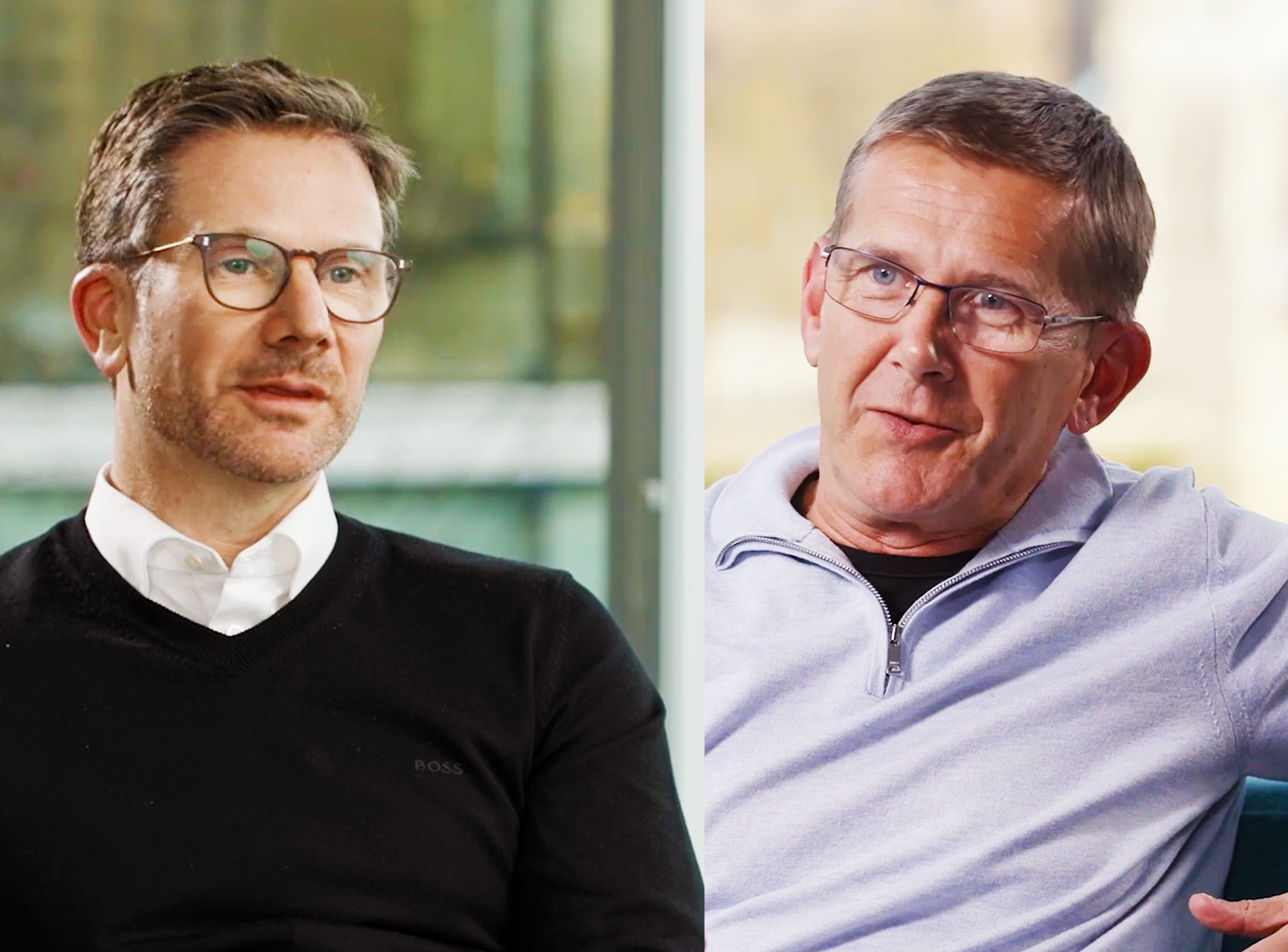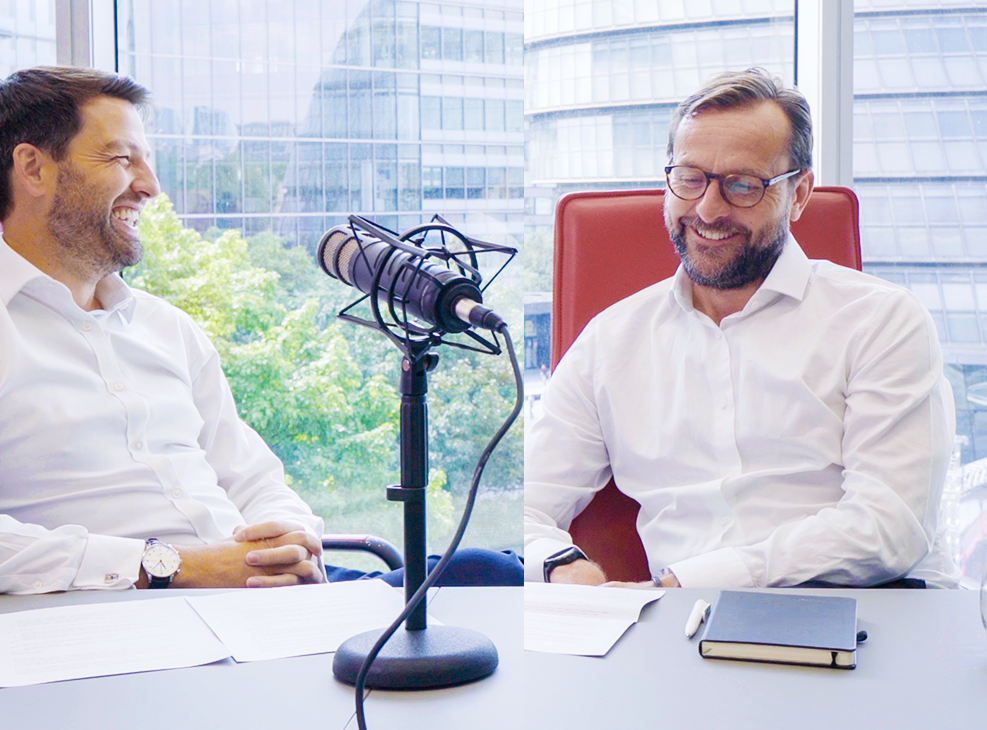Episode 30
Insuring the insurers
The world of reinsurance may seem obscure to most of us, but it is an elemental ingredient vital in keeping the wheels of business turning. Insuring the insurers; managing the risk of those who manage ours and allowing them to react to the world with more agility. This is ever more important as covid has given way to increasingly frequent catastrophes, high inflation and disruptive world events.
Elliot Richardson, Vice Chairman of reinsurance challenger Howden Tiger, engages the head of Hg’s insurance team, Andrew Land, in a wide-ranging discussion: taking on the history of reinsurance, it’s pre-eminent affinity with data, the more recent application of technology, and the plan for Howden Tiger itself to take on the big three players dominating the industry.
Note: This episode was recorded in March 2023 and may include some time-sensitive statements.
Listen on:
Episode Transcript
Andrew Land
Welcome to Orbit, the Hg Podcast series where we speak to leaders and innovators from across software and the tech ecosystem. My name is Andrew Land, I'm a partner at Hg, and I lead investments in the insurance sector. And today we're going to talk about reinsurance, which is a less well known but critically important corner of the global insurance market. And the reinsurance sector is undergoing a period of incredible growth but also incredible volatility where the importance of data is increasingly driving the sector. Now, before we get started with the discussion, reinsurance has a few acronyms that we'll be talking about.
So when we refer to CAT, we're talking about catastrophe reinsurance, so that's reinsuring hurricanes and earthquakes and other natural disasters. When we talk about 01/01 or 01/04 or 01/07, those simply refer to the dates where insurance in the reinsurance space is renewed, the calendar dates. And then finally, when we talk about capacity, what we mean there is the insurance capital that backs the policies that are written. So I'm delighted to welcome to the podcast today, Elliot Richardson, who is Vice Chair of Howden Tiger. Howden Tiger is the reinsurance broking business of the Howden Group, of which Hg is an investor and it is one of the four tier one global reinsurance brokers. Thanks for coming in, Elliot.
Elliot Richardson
Yeah, well thanks Andrew, and thanks for having us. So sadly, when you get to 35 years, you appear to veteran status. So I've been in the industry since 1988. Ironically started at a company called Alexander Howden, which was David Howden, the founder of Howden's, former family company. They were long gone by then. It was owned by the American company A&A, then became Aon. And really been in the reinsurance business as part of that 35 years for around 30, 31 years, seeing an enormous amount of change. But one thing that's been extraordinary is the rise of reinsurance and the importance of it, and we'll talk about that in a second. But the fact that probably it's one of the only industries in the world where the market share is almost an oligopoly. So just over 80% of the market share is controlled by Gallagher Re, Aon and Guy Carpenter.
So a very unusual mix, which will explain a little bit the rationale for some of the things we've decided to do later in the pod. And the reinsurance business is probably one of the things that most people tend to describe as insurance for the insurers. It's the easiest way that most people, when you ask, you're stuck at a dinner party and people's faces drop when they say you work in reinsurance. That we are ... we explain that we are the insurers for the insurers. But it's really an enormously important part of the global economy, because without reinsurance, insurers would struggle to deploy capital in such large quantities. Price would be far more damaging for consumers, companies, and anyone in the insurance ecosystem. So reinsurance is a key part of the whole global economy that drives insurance, which some people have described as the cradle of capitalism. Very little happens without insurance. So everything we do, whether it be an M&A, whether it be buying a house or otherwise. So the reinsurance market is a fascinating part of the ecosystem.
Andrew Land
And just on that, I guess when people think about reinsurance, they think about the catastrophe side and hurricanes in Florida, but in reality, even more basic insurance ultimately gets reinsured. So as you said, it's the backstop for the entire industry, right?
Elliot Richardson
Yeah. Absolutely. So it's around about a $400 billion market. In fact, CAT is only about 30 billion, it often gets a lot of the headlines, but only 30 billion. So it's almost delineated into property, casualty and specialty lines. And obviously specialty lines can be everything from cyber, terrorism, et cetera. So the CAT market seems to dominate the headlines but it absolutely touches every element of insurance.
Andrew Land
Yeah. Now we're seeing at the moment, and it is partly the CAT headlines, but more generally the reinsurance market seems to be going through a very, very unusual phase with an enormous lack of capital, huge price increases. That's having a bunch of different effects rippling through the primary markets and businesses that we invest in, including Howden, are seeing that. Just explain how that's arisen, what's driven that very unusual set of circumstances.
Elliot Richardson
Yeah. And I think we live in a world now where probably 10 years ago the term black swan would come along and people would think of things, and now we seem to get black swans almost on a monthly basis. So I think it's a combination of a few things. I think first and foremost, for a long time, there was a glut of capital in the reinsurance and insurance industry. So that tended to mean that even if the primary arm element was under pressure from a loss activity, there was an abundance of capital to deploy. Today that's not so evident. And what normally happens, and if you're a keen history buff of reinsurance, there's normally the hard market. And what we describe as a hard market in the insurance world is a price and a constraint on price. So price will go up and also on terms and conditions.
A soft market is the opposite. So soft market, too much capacity, long period of low frequency losses and therefore it's a soft market. Normally, you will see in the reinsurance world, again largely driven by the CAT angle, you will see a snap hard market. So there'll be other contributors to it. There'll be contributors of long period of soft market conditions and then normally you see a CAT that drives the change. So it will be something like Hurricane Katrina in 2005 or Hurricane Andrew in 1992. Even 9/11 and what happened there, which was a mix of multiple, but it was almost a CAT style event. So normally what would happen on those type of incidence is you would have what they call the class of '92 ACE, which is now Chubb started off the back of the early '90s problems in the casualty market and then made hay after Hurricane Andrew in 2001.
And it was companies like Montpelier, et cetera, that would start. And then in 2005 you've got the likes of Lancashire and other people that would appear. These type of examples have not happened this time. So coupled with this market, you've had a period of very hard market conditions in nearly every line of business for the last two, two and a half years. COVID triggered that. COVID triggered that along with a large spate of natural catastrophes. And the insurance industry tends to look backwards, not forwards. So how historical results drive your assessment of risk. Today, that's not so easy to do because whether it's climate change, whether it's other factors, some of these risks have never been priced in or been apparent in the past. So all of this has meant that new capital has been slightly reticent coupled with the financial issues. All of these elements, almost this perfect storm of problems. And then you throw on top Ukraine, then you throw on top inflation-
Andrew Land
Interest rates.
Elliot Richardson
Interest rates, bond markets, all of these things almost a perfect storm. So as a result of it, we're probably all ... again, 35 years in the business, you've never seen a market sustained period of hard terms like it. And with no end in sight, Andrew, at all. There really isn't a short term expectation that things are going to change. And that's without any other factors coming along.
Andrew Land
I was going to ask you, Elliot, because I remember, I think you and I probably first met each other in '05 with Lancashire, when that was set up as a response, amongst other businesses, as a response to Hurricane Katrina. And everybody knew 2006 was going to be a fantastic year for fresh capital. Maybe it goes to 2007 but not much longer. It's really interesting as you describe it that the conditions you see today have never really been seen before. And then the question becomes how does that get resolved and what happens ... Right now you're not seeing any change in that but what do you think is going to be the way in which that goes back to a more normalized set of circumstances?
Elliot Richardson
I think what you're also seeing of course is that throughout the supply chain, there is not enough capacity to take care of the original clients' needs. So we use a lot of an expression about making sure the industry continues to stay relevant. So probably in most cyber, as an example. Cyber, probably about 300 million is the maximum limit that a company could purchase for cyber. When we all know, and many of your listeners will know, they would probably like to purchase much more cyber protection than 300 million.
So the only way to solve that is to develop capacity and solutions in the reinsurance market that would enable the insurers to offer more. And that's almost the same in nearly every class of business today, with the exception of probably a couple of pockets where what happens tends to be people do get balance and non-correlation, they may feel they're too heavy in certain areas, so they drive growth in others. And I suspect a few classes, like D&O in America, Directors and Officers insurance, which is typically bought for people obviously sitting on boards or otherwise. And you can imagine off the back now of the SVB situation, that may change.
Andrew Land
It's a lot of demand. Yeah.
Elliot Richardson
They probably bought around ... The market rumor was that SVB's directors bought around $118 million of D&O insurance. That nowhere near touches the sides for the sides of the problem and the investors and everything. So with the exception of probably D&O in the US, which may change, nearly every other class of business is in a hard environment with a lack of capacity. So the only solution is to create more capacity. And we're fortunate, and we'll talk about Howden Tiger a little bit later, but we are the only one of the four tier one reinsurance brokers that has our own investment banking business.
And to give you an idea, they operate in the same world as an Evercore or some of the large banks, whether that's M&A or otherwise. So most capital market transactions in reinsurance within brokers is normally ILS or cap bonds and those type of deals. We're an actual full service investment banking operation. That's really a huge differentiator for us. So that means we are allowed to go and talk to multiple potential capital providers about the opportunity to deploy capital. I think a lot of people, especially cap, is the obvious driver at 01/01 because there's a fundamental shortage.
Andrew Land
01/01 being the renewal-
Elliot Richardson
1st of January.
Andrew Land
1st of January. Yeah.
Elliot Richardson
So 01/01 is the number one really big renewal date in the reinsurance world. Ironically, if you look at the large businesses of CAT, obviously the US is the largest driver. The second-largest driver is Japan, and Japan waits to see. So their traditional renewal date for the last a hundred years is 1st of April. So we'll see how that's looking currently. That's looking like astonishing rate increases. And remember these are rate increases that have ... with no losses. There's been no catastrophe losses in Japan since a few years ago [inaudible 00:12:28]. So that has already been baked in. So this is just cost of capital. So what we were able to do, we worked closely with a lot of clients in looking at ways that we could go to investors to deploy capital. There was still a reticence around the 1st of January that these rates were really going to be where they were.
These are astonishing. And that's actually been evident. So now with 1st of April, now with 1st of July, which is a very big US [inaudible 00:12:54]. Not as big as 01/01 but very big. This need's going to get worse. And adding in the problem that Lloyd's of London, for those who are familiar, if you're writing in Lloyd's, you have to confirm that you are writing to a stamp capacity, so that's to make sure your capital ratios are correct. So if your premium income for the year is 500 million, but rate excluded inflation is at 10%, then you're going to have 50 million and more of premium on your books without writing any more business. So that's a problem. That's a problem. So already you're starting to see Lloyd's pulling lines back to allow them to have more dry powder towards the latter part of the year. So there are no-
Andrew Land
Which is the inverse of what you want.
Elliot Richardson
Completely. So a real problem.
Andrew Land
Amazing. Yeah, so if you think forward then, the only ... If you look at insurance over the years, capital eventually flows back in. The question here is whether investors who maybe haven't been in the reinsurance space decide to come into it given the returns on offer.
Elliot Richardson
Yeah, and we're seeing some element of, if you like, a disrupting element, a new version of capital, it's actually starting with reinsurers that are what I call reinsurer lites. And especially around the MGA and program world, which creates that nimble ability, is you've got the likes of the Vesttoos, the Ledgers, the Corinthian Res that are appearing. Very light cost base, able to write very significant amount of premium. And of course the cost is often the driver. Aside from assigning the cost of capital, it's the cost base for these large reinsurers. So these companies are starting to appear and getting significant investors behind them. Interestingly, a lot of them are family office style concepts. Where they're putting money in, they'll get a real non-correlated element. What the blend is is that people are worried, often new investors are very worried about catastrophe and the volatility of it. But if you're able to blend it with some motor, some non-CAT property, some other pieces within it, you can still get return a really interesting IRR but you're not as volatile to that one particular area. So...
Andrew Land
It goes back to what you said about reinsurance is not just Florida hurricanes, it's the entire marketplace. And so that blend of risk and return is actually potentially very attractive.
Elliot Richardson
Yeah. And so that's where we're starting to get some real traction. And those companies are companies that we largely helped get going. We're able to deliver them solutions, we've got the full suite to be able to do it. And then frankly, every client is lovely to have, but unless you can deliver them solution, you don't have any clients. So we focus very heavily on market creation and capital infusion.
Andrew Land
Fascinating. So just thinking a little bit about the innovation in capital structure, I think the other really interesting part of reinsurance is, and something that relates very much to what Hg does with software and data, is it's probably one of the first industries that really adopted data in a commercial way. Now again, going back to catastrophe market, but the way in which the reinsurance market relies on data and data modeling. And I'm just curious about, given some of the innovations that we're all seeing around AI and that kind of thing, will reinsurance continue to be at the forefront of that?
Elliot Richardson
Yeah. And often people say that insurance is one of the last places to be affected by tech. I would actually go the contrary and say that actually 30 years ago they were the first people to really heavily use data. And you touched on CAT but it wasn't just on catastrophe. So if you talk about liability, so actuaries are needing to work out where the tail is, what's the likelihood and how long. Because often with liability insurance, the insurers obviously were able to hold onto the money for longer because there was a tail risk, not necessarily an individual event where you would pay out. So obviously liability insurance could be someone falling over in a fast food restaurant or damage in a result of a car accident, whatever. All those things take a long time to process. So actuarial data was vital and the amount, the sheer weight of actuaries in the business is enormous. Again, that was vital, the quality of that data, making sure the more you could get good quality data, the more you could drive a good solution in the market.
And CAT, you saw the rise of ... Obviously you had one side, the rating agencies, but also the modeling agencies. So models continually are needed to be used and it's no different to any walk of life. If the quality of the data is not good going in, the output is terrible. So data has become an enormous part of the day-to-day and now data analysts, people looking at this business, looking at trends. You've also got, in the insurance world, nearly almost through ... The old-fashioned way was to say, "Right, on motor business, how do you know the difference between a good driver and a bad driver?" Now you've got things in cars, you've got the ability to track and break out and cut the data in different ways, which is giving motor insurers a different edge. And then the reinsurance world is creating the same sort of solutions to create whether it's capacity, different terms, et cetera. So it's an enormously heavy amount of tech and data is involved in insurance, much more than what people would perceive on the front end of the business.
Andrew Land
Well, I think, yeah, what's also interesting for us at Hg is the way in which the insurance sector has, as you say, for over 30 years, has integrated data with all the workflows that go on. So it's never been ... Data's not a thing over there that you bring in when you feel that you need to. This has been the core of all of that underwriting and assessment of risk.
Elliot Richardson
I think sometimes the key is to not use the term data. Data frightens people. If you use data, they think, "Oh, this is going to start to get a bit complicated." But actually we're using data all the ... every day, just part ... But we just use it as information or submission or the analytics element. And we use it but it's that ... we never frightened each other initially by calling it data. So I think sometimes it's like anything, it's what you position it as rather than calling it data. Equally, it's the same all the way through a chain. As a broker, the industry's very anecdotal, so how's your pipeline? Big. How's the market? It's up by 10, down by 10. You know quite well Andrew, so you know what I'm talking about. Now you're starting to see conversations that are happening that have real substance to them. And it's a very different market than even five or 10 years ago.
And some of the stuff that the insurance world is dealing with is highly complex. And so you have to be ready for those answers and you have to hire very, very different types of people than you've probably ever had to hire before and bring them in, make them understand what it is. And often with insurance, people start to ... you see the look of disappointment on their face. But if you deal with risk every day, we all deal with risk. Whether you're going to invest in a business, whether you're going to do something. And we are risk advisors, we just happen to have different elements of solutions that may involve reinsurance or capital decisions. In fact, we don't actually call ourselves reinsurance brokers. We call ourselves risk and capital advisors. And so that's the way to position the world of insurance is that they're helping people with risk.
Andrew Land
What's your view then on what AI and particularly all the chat recently on ChatGPT, how that could come into the insurance and the reinsurance space? Is there a going to be a role for that type of AI within the insurance industry, do you think?
Elliot Richardson
Without doubt. I think for a long time there's been talk about certain elements of insurance are going to probably be disrupted or changed dramatically. Hasn't quite happened. But it actually has subtly, as I said to you, in different parts of ... Especially in the personal lines insurance. What we mean by personal lines is somebody's house or their car or a painting or whatever. If you look at that, most of that's now got quite a heavy tech element to it. You've also got aggregators, so you've got people like Compare the Market, you've got other people out there doing this stuff that are using tech continually to drive people into the type of thing they are. They're using the underlying data to do so. As more of that data comes into the stream, what I think you're going to find on brokers are still a lot of the business that retail brokers in the United Kingdom, for example, and we in Howden are one of the largest in that space. I think we have six and a half thousand people, over 200 offices, just in the UK.
But so much of that's still done individually, by transaction, person to person. Without doubt, AI will drive the ability to bundle more and more of that up and be able to deal with it where it actually benefits the consumer more. The quality of wordings, data, the way it's delivered to people. There's so much of the client service I think will be a much enhanced on that side. I think still with insurance, it still often needs individuals to explain the nuance, whether AI can continue to evolve to a point that it can be nuanced. Now you see certain examples of that. Whether or not that's something that ... But it's going to be a real driver of it. And in fact, we were talking about this the other day. In the reinsurance world, you have to use an expression called RFP.
So if an insurer who's one of our clients wants a request for a presentation that what we could do to help them. We believe that AI can take about 70, 80% of what the repetitive element of that away so that your people can focus on the 30% that really matters. So it's not, again, about losing people or ... This is about actually allowing your people to spend time on the things that make a difference to that client, not some of the heavy, burdensome... So I think that's going to be great news for the industry. It's going to drive more time to help clients.
Andrew Land
Yeah, it is going to be that mix of the stuff that is laborious can be automated and, as you say, the real value add and the IP, you've got more time for that.
Elliot Richardson
Absolutely.
Andrew Land
And that's what the clients want. Yeah, really interesting. Look, let's talk a little bit more about what you're up to with Howden Tiger because this is one of the biggest developments in the reinsurance space in the last few years. And I'd be interested just to get your views on why that's important to the sector and what you think it might mean for the sector going forward.
Elliot Richardson
Yeah, it's been an amazing few years and we had an enormous amount of support to do it. But when you look, as I mentioned earlier in the pod, but you've got an oligopoly today. And most people would think that was extremely odd, to have a market share of over 80% with three players. But it wasn't contrived. It just happened over time. And largely because the three companies I mentioned, both Gallagher, Marsh and Aon acquired so many businesses over the last 30 years. So the likes of the Johnson & Higgins, the Benfields from Aon, JLT from Marsh, all these companies had great reinsurance businesses and they ended up... So now you create the oligopoly. And it was really a lot to do with the consolidation that happened. So in fact, the last time there was a major competitor to the large three, and in fairness, Gallaghers are new to the party because they acquired Willis Re.
So after the failed merger between Willis and Aon, Gallaghers acquired Willis Re. So same concept, big retail business, but they were slightly later to the party. So the last time there was a true fourth tier one player was Benfield, which was taken out 15 years ago, which was acquired by Aon. And there's been other people that have been very good at what they do. JLT Re had a good reinsurance business for a while, but nothing like something that ... The last three knew they were in a game when they were up against Benfield. So we felt that it was time for that to come back. Also, you have to be at a right moment in time. So Howden as a company had evolved to a size that was becoming a global brand, had rapid growth, had tremendous relationships with the carriers. And trust. So trust was a big part. The carriers knew and liked the Howden story and would want to help if we...
So you needed to get all those aspects right and that you can't rush? That's the great conversation we have about Howden. That there's 29 years to be an overnight success. The last three, four years, it's evolved tremendously, as you well know. So we felt that there was an opportunity to create that challenger and also to do it differently. And so we knew that we could ... And Benfield used to ... I was lucky enough to work there for a period of time. Benfield used to always have a philosophy that you need to create areas of your business that there is no doubt you are the number one operator. Because if you are the smaller of the four, you might get invited to a lot of the parties but you may not come anywhere near enjoying that party. So there'd be a lot of work involved. So what we wanted to do was really excel. So I touched on earlier about the capital market. We knew that if we were able to buy Tiger, we'd create a unique position in the market around that.
Secondly, something I'll talk on very quickly, which is our approach with what we call delegated authority. And to put it in context, in the PE or other world, is it's a similar model. Someone gives you their capacity, delegates you to do that better than them, and will pay you accordingly. So delegated authority, we effectively write on behalf of third party capital. It is the fastest growing market in the world. It's forecast to be, this year, 70 billion of a premium just in the US and growing rapidly everywhere else. And we dominate that area. So we use the term saber, which was meant to be the most fearsome of all the tigers, also extinct, but we're trying to bring it back. And we placed six billion of premium in that, which is larger than our three competitors combined. So we built a business that was, with a single PnL, a team of business that would bring a multiple suite of products which are very much built for the modern client. And really develop something that gives clients an edge. It's not good for clients.
It's not good for the market to have three people doing it. And also what it will do is it'll bring the whole market level up. They will have to respond, they will have to invest more and that's good for the whole market. So our clients will benefit but we genuinely believe that we've got something unique. We've had an amazing support from the market. It's becoming a destination for talent in the industry, which is massive. And I think we've got a global business that's very, very different to anything else out there. And we know that we can be invited to any of those parties now and have a very good time from what we're doing. And so Howden Tiger over the next five or six years will evolve into really a big global reinsurance business that will ... right at the start of this conversation. A lot of those problems that are facing the industry, we want to take those on head on. And help our clients deliver better solutions, which ultimately benefits the whole ecosystem, but also is very much in line with the rest of Howden.
Andrew Land
And what's interesting there, Elliot, is what you said earlier about with this lack of capacity and frankly the need for capital to flow back into reinsurance, Howden Tiger, with that investment banking capital markets franchise, I mean, it's a great time to be-
Elliot Richardson
Hundred percent.
Andrew Land
-growing that because those guys are going to go and find that capital.
Elliot Richardson
If you like, our competitors are banks, so they're people who actually do this solely. So we know the market. So that's a huge advantage, the data element around that. So whether it's on the buy-sell side, whether it's on raising capital, whether it's ILS, cap bonds, whatever it is, across the gambit of capability, we've got the benefit of so much of the data within Howden, we've got the benefit of understanding the market better. So I think we have a huge advantage. Equally, we always use that business to drive long-term annuity revenues.
So first thing often happens, people say, "That's unusual, how do you deal with the fact that every year you start at zero like any banking business?" But actually most of our big, large clients started in the capital market team and ended up becoming a very big annuity player. So it's a brilliant opening of the door. And also those people are trusted, they're dealing with people's most important dreams, whether it's buying their company, selling it, whatever. And it's a real part of our secrets sauce I think. And we have an amazing relationship with them across all the brokers, bringing them into all the deals. So the brokers are also the eyes and ears for that. So it's great for investors, it's great for the market to have that sort of mousetrap.
Andrew Land
And I guess you're also, Howden, you ran a really great business within Howden, but it was probably more year European based. Tiger was very much US. You've now got a genuinely global franchise in place.
Elliot Richardson
Yeah. And more to come. Even now that we've created what we've created, we're still only 6% of the market. But growing incredibly quickly and with a very, very great environment to work in. So I think the clients find that great. People who are working there and are on their way to us enjoy it. And Howden's a very unique business. It's built around the employees. If you drive the right incentive plans to the employees, it's like anything [inaudible 00:31:12] could be an elite sport or otherwise, if that person's 2% better, that can be the difference. And I think Howden as a company have that differentiator because of the atmosphere and the way that people work. So it's a great place to be.
Andrew Land
Great, thanks, Elliot. Well, I know you're, other than reinsurance, your other big passion is football. So Arsenal for the title?
Elliot Richardson
Top four, Andrew. Definitely. We're just top four. We're glad to be there. No, we're enjoying the ride. But in fact, I took my mother on Sunday because it was Mother's Day, so obviously she didn't get some flowers. She got to come to Arsenal. And she keeps crying off every game. I said, "Mom, there's 10 to go." So it sums it up.
I don't even want to know. ... bring a medical team with her every time. So no, we're enjoying it, but we'll see where we are in a few weeks time.
Andrew Land
Yeah, good luck with that. Well listen, Elliot, thank you very much. It's been super interesting talking to you and really exciting developments in the market with Howden Tiger. So thanks again for contributing.
Elliot Richardson
Pleasure. Thanks, Andrew.
Orbit episodes
